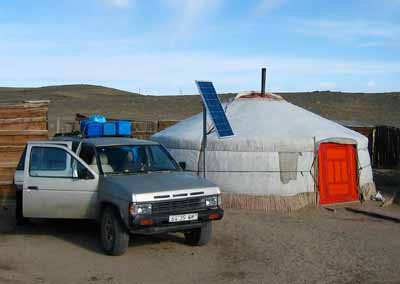The Mongols would not have long to enjoy their plunder. In July of 1214, when they were fattening their horses on the steppe, came the disturbing news that Emperor Xuanzong had abandoned Zhongdu, the Northern Capital. On 30,000 carts, and accompanied by 3000 camel loads of treasure, the Jin court and government had left Zhongdu and was on its way to the Southern Capital (current-day Kaifeng), hopefully out of reach of further Mongol incursions. Many Jurchens viewed this apparent refusal to face the Mongol threat head-on as abject cowardice on their part of their leadership. Mutinies broke about among Jurchen troops and even more units defected to the Mongols. The Southern Sung Dynasty, sensing the impotence of the Jin, refused to cough up the tribute it had previously promised to pay them. Chingis Khan, after the humiliating terms he had early imposed on the Jin, considered them to be subordinate to the Mongols, indeed part of the nascent Mongol Empire, and he viewed the move south as a treacherous attempt on the part to Jin Emperor to regroup and continue the fighting, despite the treaty agreements of early 1214. Obviously the war with the Jin was not over.
In the autumn of 1214 Mongols armies again poured off the Mongolian Plateau, and by the end of the year the Northern Capital of Zhongdu was once more invested. The court and government may have fled, but the inhabitants of Zhongdu, including the army units that had remained, were by no means ready to surrender their walled and well-fortified city. In their earlier battles with the Xi Xia the Mongols had failed to take any major fortified cities due to their ignorance of siege techniques. This weakness again manifested itself. The walls of the city refused to yield, and a brutal war of attrition played out through the winter and spring of 1215. Food supplies within the city were soon exhausted and according to the Secret History, “the remaining soldiers, who began to grow thin and die, ate human flesh.”
When a relief train sent to the beleaguered city was captured by the Mongols the defenders knew they were doomed. The commandant of the Northern Capital, Wayen Fuxing, committed suicide, and in late May or early June of 1215 troops led by the Khitan Shimo Mingan, who as we have seen had defected to the Mongols back in 1211, forced their way into the city. A month-long orgy of looting and mayhem ensued. According to one account, 60,000 women and girls committed suicide by throwing themselves from the city walls in order to avoid capture by the Mongols. This was no doubt an exaggeration, but a large part of the populace was massacred and much of city burned, but not before huge amounts of loot was seized . . . Continued.















